Should your coffee machine be unplugged when not in use? Experts reveal what to do to stay safe and save on energy
If your coffee machine is constantly plugged in it really shouldn’t be
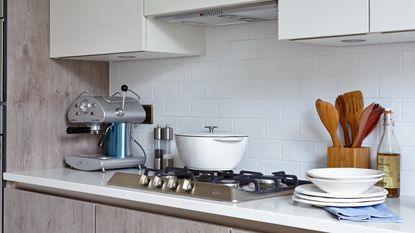
A good coffee machine is every coffee lover’s prized possession. Especially as this type of kitchen appliance is an investment – they don’t come cheap. But something that may have never occurred to you is whether you should unplug your coffee machine when not in use.
As convenient as leaving your best coffee machine plugged in at all times might be, it might not be the safest or most economical thing to do, as our appliance experts reveal. And this is why you should avoid this common coffee machine mistake.
Should coffee machines be unplugged when not in use?
Similarly to why air fryers should be unplugged when not in use, there are two main reasons why you shouldn’t leave your coffee machine on standby, whether it’s the best bean-to-cup coffee machine or a pod coffee machine – the first is fire safety and the other is saving energy and by extension saving money on energy bills.
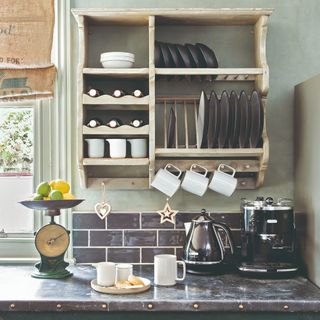
Stay safe
The safety aspect of unplugging your coffee machine is actually universal across all electrical appliances.
‘Leaving appliances plugged in, even when not in use, is pretty common, but it’s generally best practice to unplug appliances that aren’t being used,’ says Matt Ayres, appliance expert at RDO Kitchens & Appliances. ‘As a safety precaution, it’s always best to leave appliances unplugged if they are going to be left unattended for a long period. Over time, wires in electric appliances like coffee machines can become worn away or faulty, which puts them at risk of starting an electrical fire.’
He goes on to share a frightening statistic, ‘In the UK, about 25% of electrical fires are caused by faulty appliances so it’s always safer to keep appliances unplugged.’
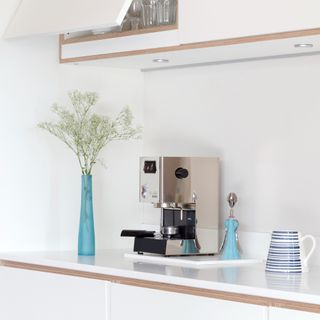
Save on energy consumption
At the same time, coffee machines are one of the home appliances you should never leave on standby in order to avoid high energy bills. And unplugging these babies is one of the ways how to save energy at home.
‘Leaving your coffee machine plugged in all the time may seem convenient, but it can increase your energy bills,’ says Thea Whyte, coffee machine expert at AO.com. ‘Even when in standby mode, coffee machines consume a small amount of energy, which varies depending on the model. On average, they may draw around 1 to 5 watts in standby mode. Although this may not sound like much, it can still contribute to your overall energy consumption and electricity bill over time.’
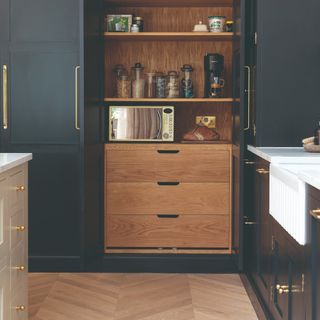
Matt continues, ‘Energy could be used to power lights or displays showing that the device is off. If the coffee machine has WiFi connectivity or a timer, this will draw electricity too. larger coffee machines or machines that have a ‘keep warm’ function will use more energy than smaller machines.’
‘For example, a coffee machine that uses about 1300W will cost the average consumer about £0.11 per 20 minutes. If used every day, this will cost consumers around £40 a year. If the appliance uses just 5 watts an hour on standby, this adds up to £11 a year,’ he concludes.
Our favourite coffee machines
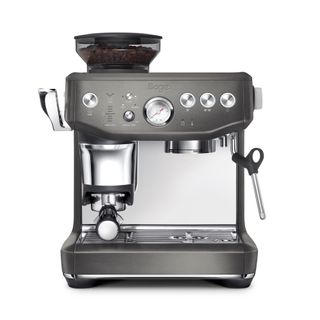
This machine is rated by our reviews as both the best coffee machine overall and the best bean-to-cup coffee machine for its stylish look, powerful milk steamer and adjustable grind size. Among many other impressive features.
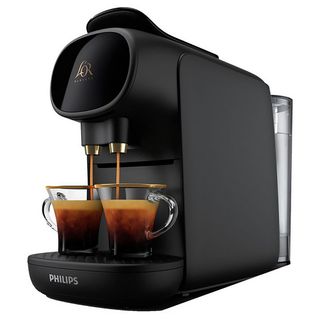
If you're on a budget, then this coffee machine is the best one you could go for. With an RRP of £109.99, it's a great value and very easy to use. Not to mention the sleek design.
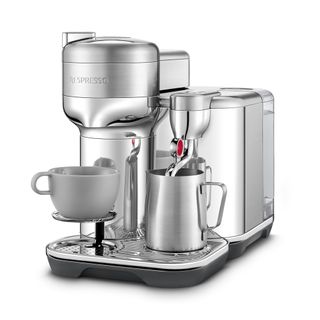
If pod coffee is you jam then you couldn't go for anything better than the Nespresso Vertuo Creatista. Admittedly, it is a pricey appliance, retailing for almost £700, but we love the futuristic, silver design that rivals even Sage coffee machines.
While some of the resulting costs might seem negligible, they add up, especially in the cost of living crisis. And it’s always better to be safe than sorry at the end of the day.
Get the Ideal Home Newsletter
Sign up to our newsletter for style and decor inspiration, house makeovers, project advice and more.
Sara Hesikova has been Ideal Home’s News Writer since July 2023, bringing the Ideal Home’s readership breaking news stories from the world of home decor and interiors, as well as trend-led pieces, shopping round-ups and more. Graduating from London College of Fashion with a bachelor’s degree in fashion journalism in 2016, she got her start in niche fashion and lifestyle magazines like Glass and Alvar as a writer and editor before making the leap into interiors, working with the likes of 91 Magazine and copywriting for luxury bed linen brand Yves Delorme among others. She feels that fashion and interiors are intrinsically connected – if someone puts an effort into what they wear, they most likely also care about what they surround themselves with.
-
 How to get rid of Japanese knotweed – without risking a hefty fine
How to get rid of Japanese knotweed – without risking a hefty fineYou may be liable for up to £200,000 in damages and costs if you don't remove it
By Kayleigh Dray
-
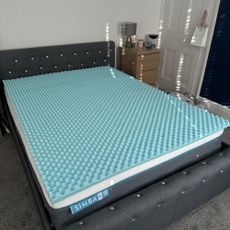 Aidapt Memory Foam Cool Mattress Topper review – tried and tested
Aidapt Memory Foam Cool Mattress Topper review – tried and testedOur Aidapt Memory Foam Cool Mattress Topper review tests out this budget mattress topper to see if it delivers on its promises to deliver a cool night's sleep
By Rachael Penn
-
 Kate Moss has launched wellness scents for the home - I tried them and they honestly smell incredible
Kate Moss has launched wellness scents for the home - I tried them and they honestly smell incredibleElegant and earthy, the incense sticks won me over
By Ginevra Benedetti